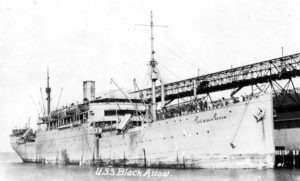When the United States instituted draft laws in 1862, mass riots disrupted New York City, killing numerous civilians and injuring a multitude of others. After the Civil War, the concept of drafting soldiers was dropped. Only in April 1917 did the United States institute the plan again.
President Woodrow Wilson took a nation unfit for battle into the Great War that year. Each state had a National Guard, many of whom were guarding the border with Mexico. But these were little more than a local or state militia. Military training, equipping the army and navy, manufacturing weapons were all lacking, but the country soon had a semblance of war readiness. One of the first actions was to create local draft board that managed three rounds of drafts, organized by dates of birth.
Each round was held on Sunday so young men would not miss their work the other six days. Most newspapers in Hunt County did not print a Monday edition; so on Tuesday readers could read the names of everyone in the county who registered on Sunday. As a good citizen, if a reader noticed that some name missing, he was to notify the draft board immediately.
An incident occurred in early October 1917 that made the Dallas Morning News. “James W. Chatham, Jr., of Greenville who is now at Camp Travis, yesterday refused to accept a permanent discharge that had been granted him on industrial grounds. At the time of his examination Mr. Chatham held a responsible and highly specialized position at the Greenville cotton compress, but refused to file any claim for discharge. Thereupon his employers filed a claim with the district board. In the meantime, Mr. Chatham made personal request of the local board at this place (Greenville) that he be placed in the first 5 percent and stated that he would waive any claim in his behalf that might be pending. When notified that discharge had been granted him, Mr. Chatham wrote the local board that this was as much his war as any one’s, and that he was going to stay in the army until the end.”
So what was this responsible and highly specialized position? He was the cashier, not a highly trained engineer as suggested. On his draft card in a note stating that someone claimed exception for him on the grounds that he handled cotton and linters that are “assets to government.” (Linters were machines that removed short cotton fibers from cottonseeds.)
Chatham had two years of college, lived on Park Street with his parents, and probably looking for adventure. However, it seems he missed the real dangerous encounters. According to U. S. Army Transport Service Records, he departed the U. S. on May 31, 1919 for Bordeaux, France as a First Lieutenant in the Quartermaster Corps.
When the war was over, Chatham did not return to the cotton compress in Greenville. He appeared to have been a very organized young man who had a talent for industrial management. He served as traffic manager for Wichita Falls before becoming manager of Tuf-Nutt, a hardware manufacturer in the same town. By the 1930s he worked for the Federal Works Agency as a supervisor who administered a number of public construction, building maintenance, and public works relief functions and laws.
By 1940 Chatham, his wife, and three children were living in Detroit when he continued to work for the Federal Works Agency. He died a natural death in February 1981 where he is buried in Grand Lawn Cemetery there. I believe it is safe to say the cotton compress in Greenville did not suffer severely the loss of his talents. Maybe his boss should have asked his permission before filing a exemption claim with the draft board.

